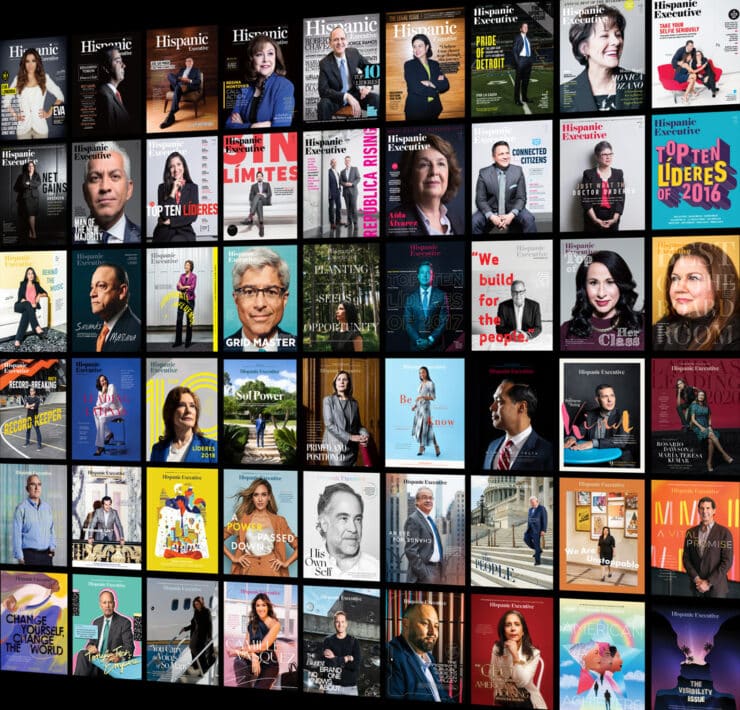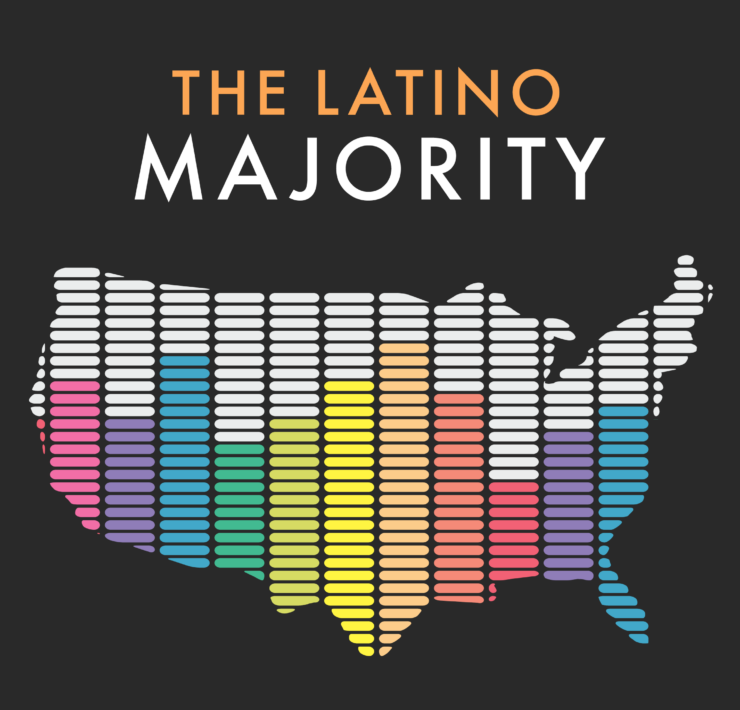
|
Getting your Trinity Audio player ready...
|
When I sat down to write this letter, the team at Hispanic Executive had just launched the first season of its podcast, The New Majority. Our goal is to provide yet another way to highlight the leaders of the new American majority. One that is increasingly multicultural and increasingly Latino.
I knew that hosting the show (a long-held dream) would be a profound experience. The leaders we interviewed are all keenly aware of the importance of inclusivity, of bringing people in or ushering them along. They innately understand the importance of changing the narrative for themselves, and through their actions, they have not only authored a new story for themselves but changed the perception that the rest of the world had of them.
What I didn’t expect was for this experience to be so revelatory on a personal level. Hosting and producing the podcast forced me to flex a muscle that is admittedly weak: listening.
These aren’t normal conversations. I wasn’t able to trail off on a tangent or riff on a new idea. I had a show to create, after all. I had to listen to and capture the thoughts brought to the table by our guests and try to weave them all together. Then, hopefully, I would have been part of an interview worth listening to. It was all made easier by the fact that the guests on our show are so captivating. Their life narratives are so rich in experiences that what was captured in the episodes is just the tip of the iceberg in terms of their shared experiences.
That depth of experience, and that sense of energy and influence, is unquestionably present in this Leading Latinas issue.
Like the Latinas interviewed for The New Majority, our Leading Latinas have made it their mission to challenge the status quo. Our cover star Christy Haubegger has spent her entire career challenging the media industry by fighting to ensure that diverse leaders are seen on the screen, in the pages of magazines, and in the workplace. Gilda Perez-Alvarado is demanding that we reconsider the modern workplace so that it works for everyone, not just a select few. And all of our Leading Latinas, in their own ways, are challenging the perception of what leadership looks like in corporate America.
Our Leading Latinas are not alone in this regard. Our Latina activists, Dior Vargas and Dr. Samarys Seguinot-Medina (Umyuugalek), are challenging the status quo in every facet of their lives. And they are uncompromising in their expectations for change. Whether they’re fighting the impacts of climate change or speaking out about mental health, they assert themselves authentically at every opportunity, in every conversation, and at every table of influence they have access to.
Reading these stories was inspirational, and motivational. What these leaders have to say about their industries, communities, and experiences as Latinas should be emblazoned on walls, in pamphlets, and everywhere else that the world can see and appreciate it.
But what they don’t say is equally powerful. And as I listened—truly listened—to their stories, I realized something critical.
On the surface, there are clear distinctions between the efforts of activists like Dior and Dr. Seguinot-Medina and those of business leaders like our leading Latinas. But when you look just a little deeper, you’ll see the connections: like the most impactful entrepreneurs, Dior and Dr. Seguinot-Medina have an eye for opportunity. They saw a gap, and they stepped in to provide services and support. Today, they are making a difference because they have aligned their personal passions and expertise with a critical, underserved need in their communities.
There is a restlessness in leaders like Dior and Dr. Seguinot-Medina. It is spurred by a deep-rooted desire to drive change and could—if one chose—be viewed as an indication of activism, a word and practice which, for a long time, was considered and expected to be separate from business. But these leaders remind us that the separation between business and activism is outmoded. Because if there’s anything that the past two years has taught us, it is that companies and leaders cannot stay out of these conversations.
The majority of Americans today are what we, in previous years, would have called activist consumers. The transformation our society has gone through has left employees and consumers alike yearning to align their values with the products they’re purchasing and the services they’re using. And both groups want to know what steps corporations are taking to effect the changes our society so desperately needs.
Companies everywhere must continue leading with those values in mind and actively listening to both their consumers and internal stakeholders. They must look to leaders like the Latinas featured in this issue—both the activists and the business executives who have embraced the causes consumers hold dear—because they are the ones authoring the future of business. And they must understand that challenges to the status quo are both necessary and good. Because the reality is, there’s no going back to the way things were, and Latinas in leadership positions are here to stay.







